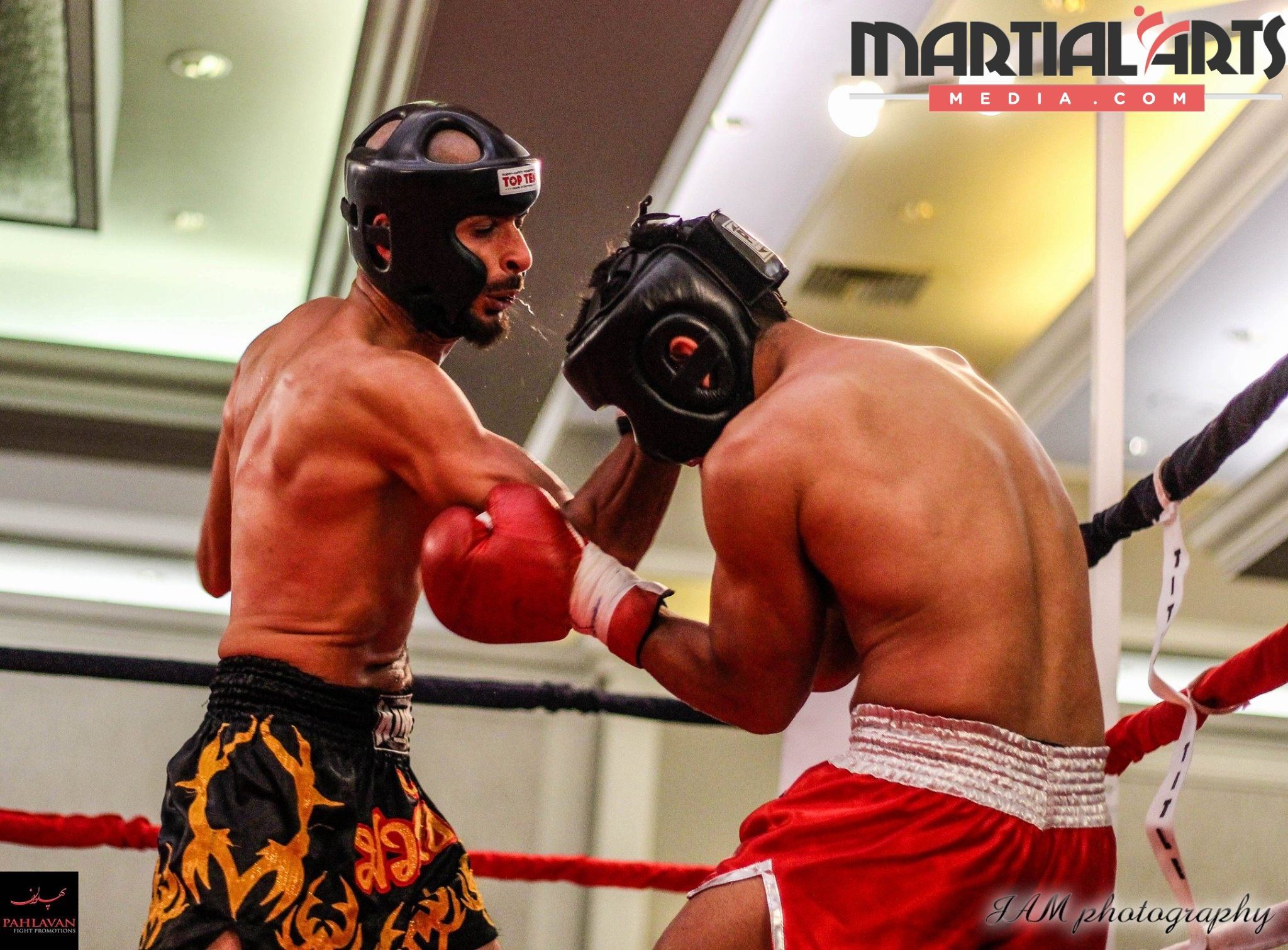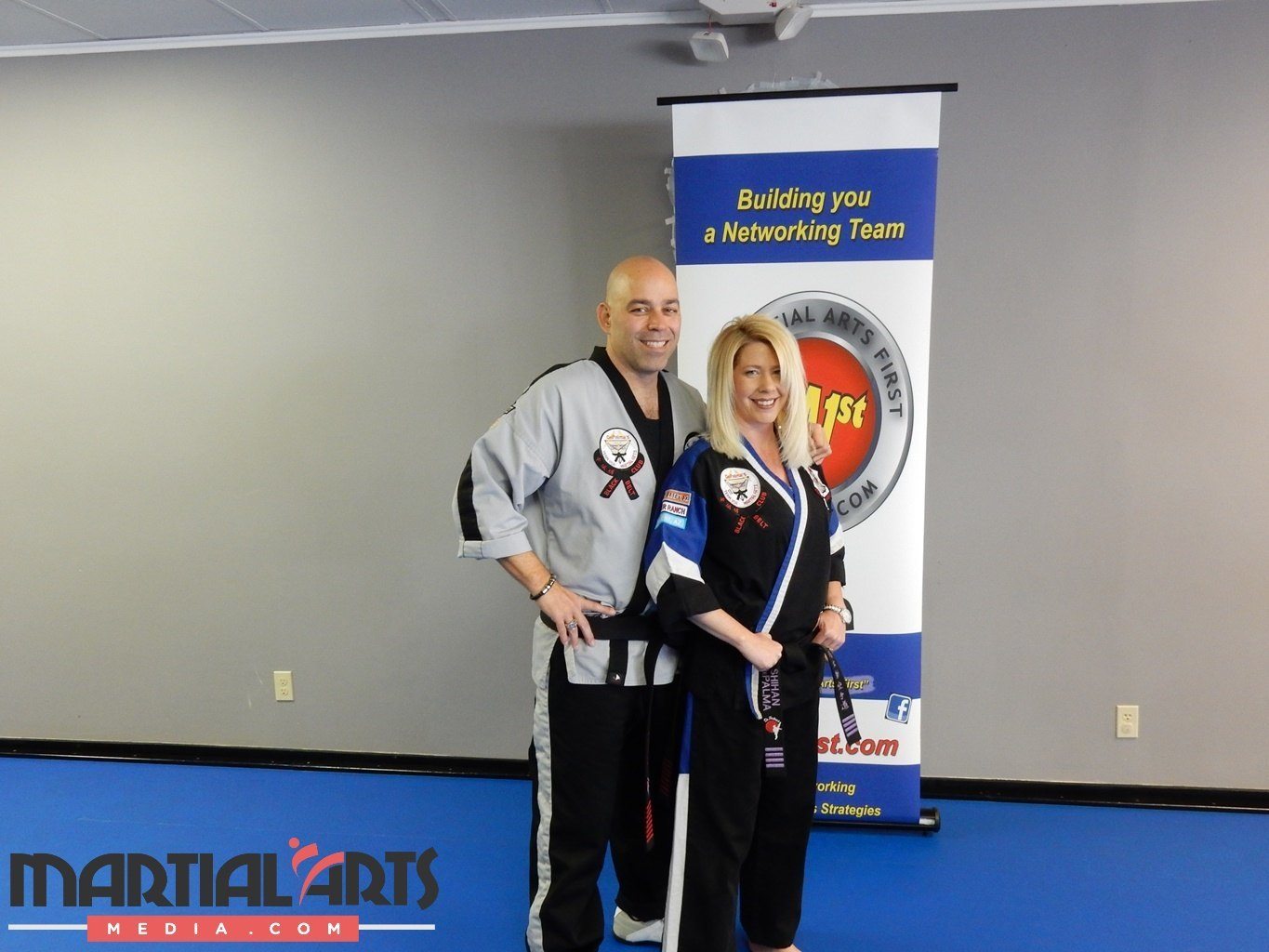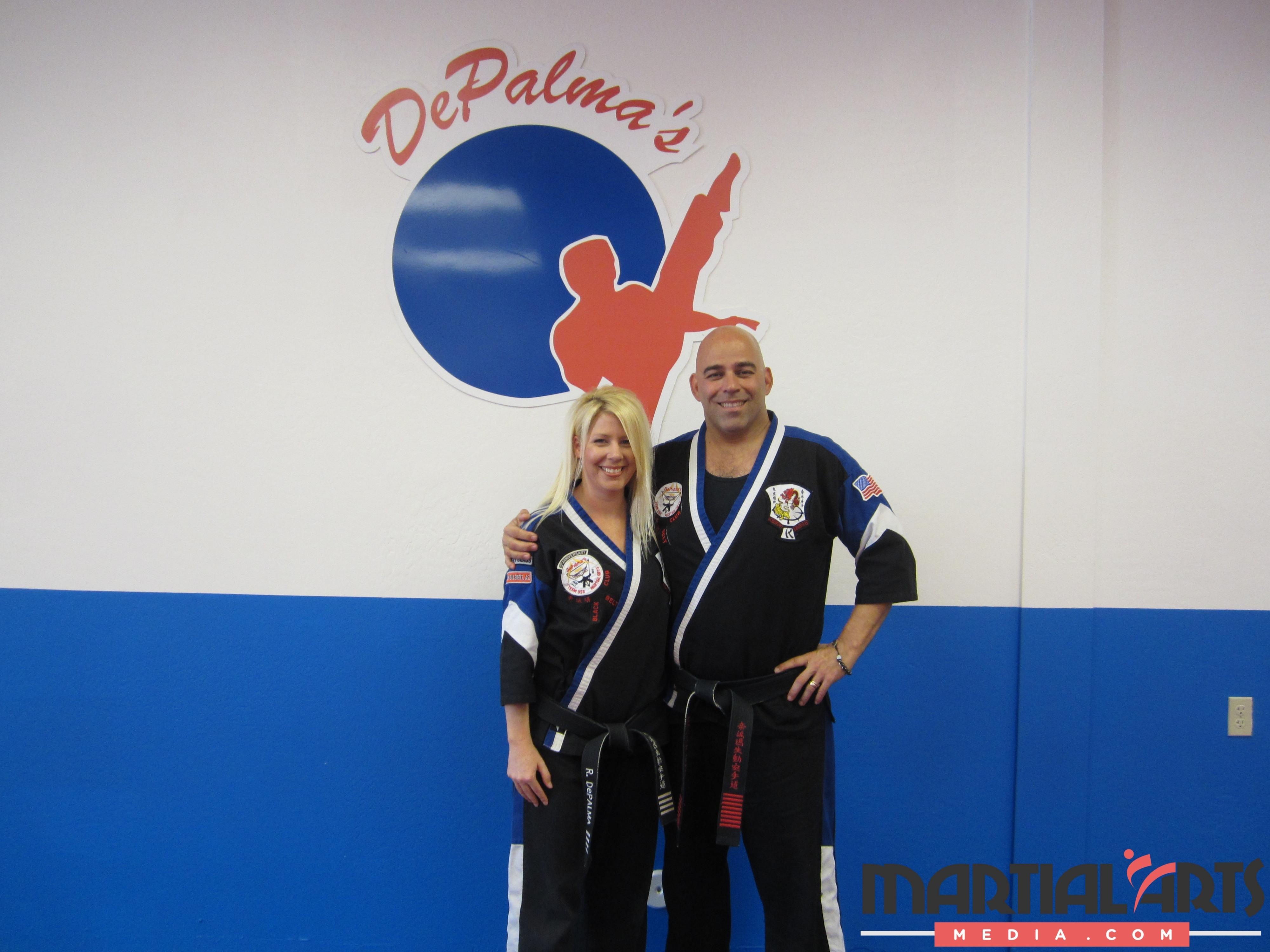Jack Leung is capturing attention with his martial arts training videos. We discuss frameworks to create your own.
- How video marketing can help boost your martial arts business.
- Step by step framework for making engaging martial arts videos.
- How to grab attention in the first 30 seconds.
- Why Jack Leung ended his career in graphic design and pursued martial arts instructing.
- How to overcome the one thing that stops martial arts school owners from creating videos.
- And more
*Need help growing your martial arts school? Learn More Here.
TRANSCRIPTION
George: Hi, this is George Fourie, and welcome to another Martial Arts Media business podcast. Today, I have another great guest with me, Sifu Jack Leung. And Sifu Jack Leung has, I'll guess I'll start off with the video side of things, has an awesome YouTube channel. You've got to see the videos to appreciate it, and we'll link to it in the show notes. And look, a video marketing, doing video in general, is something that, it's a big component. We're always talking about it in the Martial Arts Media Academy with our students, of really leveraging it. And Jack claims he's not an expert, but I'm sure you're going to disagree when you watch his videos. So, first and foremost, welcome to the show, Jack.
Jack: Thank you for having me, thank you.
George: Awesome. So, let's start just in the beginning, to give people a bit of an idea, who is Jack Leung?
Jack: Hi everyone, my name is Jack Leung, and I teach Wing Chun in Queensland. I currently run two full-time clubs, and four different small clubs at different locations, at school halls and community centres.
George: Alright, cool. So, going a bit further back, how did your whole martial arts journey evolve?
Jack: I started out training in Hong Kong, and I'm from Hong Kong. I started out training with Karate first in high school. And I went to, let's just say a rough high school, and we get to test a lot of things before there were videophones and that kind of stuff. So sometimes, a lot of instructors don't say … they only tell you the good stories. Sometimes you win, sometimes you lose, sometimes you lose badly, and that's when I started looking into martial arts.
In the beginning, I like to tell people, and this is what I tell parents, I want to be stronger, to be able to protect myself, but that wasn't the case. I just wanted to be very good, to protect myself and beat up other kids. But that's very different 20 years later, that's very different 20 years later. So, that's how I started. And I started training Goju Karate first, for five or six years, and in between, I trained some different types of Kung Fu. Some Southern Praying Mantis, different lineages of Praying Mantis, and then I met my Sifu in 1996 when I walk past on the way to school. And then, I started, I just walk in and say, “Oh, what is Wing Chun?”. And that got me interested in training Wing Chun.
George: Awesome. So, how long have you actually been in Australia, then?
Jack: I've been here, I think, roughly 20 years now, I think 20 years. Yeah, let me think. Yeah, 20 years now.
George: So your whole family moved over to Australia?
Jack: No, I came over to study, first, and then I went back and forth. In the beginning, I didn't know if I liked this place, and then, so I came over, I studied, and I went back and forth. And, yeah, that's how I stayed behind.
George: So what made you really see Australia as a way to obviously further your life, and stay permanently?
Jack: I would like to say, I like Brisbane, I'm from Brisbane, and I love the weather here. It's the Sunshine State, I love the beach, and outdoor living, it's great. I'm not saying Hong Kong's not great, but it can be a crowded places, and just a lot of conflicts, a lot of people. Let me rephrase this, there's conflict everywhere, but it's easier when you have to travel every day, you go on train and there's lots of people in and out. A big city like that, I prefer Brisbane. And now I like Australia, that's why I'm here.
George: Awesome. Cool, so you started your journey in Hong Kong, and then you moved to Australia. So, how did this evolve to then actually going on the teaching journey?
Jack: So, I never thought I would teach Kung Fu, or any martial arts. Before I teach Kung Fu, I had a graphic design company and printing company. I was doing that for the past 10 years before that, and in terms of business-wise, it's not bad, it's not bad, but I just have to always work over-hours. Just imagine if you need business card, or flyers for your events, for your next event. People always come in and say, “I need it.” “When do you need it?” “I need it yesterday.” It's always a rushed job.
And when you're a boss, it's hard, because when other people, your employee, leave and finish work at 5:30 or 6:00, you're the boss, and you have a client, and they want it urgently, so who's going to stay behind? Your job. If they're willing to pay extra-loading, as in they pay extra $60 for extra time who's going to stay behind? You will have to stay behind. I will have to stay behind. Meaning, every night, lots of time, I stay until 9:00, and very late, yes, that's right.
George: Yes, I was at a business conference on Monday in Sydney, and it was a joke that came up: you're the business owner, then you've got the staff, and it was kind of like, It was said in a sarcastic way, “How can these bastards not want to work the hours that we want to work as the business owners?”. So, we always expect them to obviously give that output, but yes, I understand that pressure of, your clients … And you always feel your reputation is at stake, so even if it's the littlest thing if you love your job and your business, you always take it to, “I've got to stick to this deadline whether it's impossible or not.”
Jack: It is true. So that's how I decided, after 10 years of doing the same thing, I decided to just start something else. I first got into fitness training, I was doing that. And it was hard, it's never easy. To all martial arts business owners out there, for those who are interested in going full time, I'm telling you, it's not easy. But if you do what you like, you don't have to work a day in your life anymore, and that's my favourite quote.
George: I love that quote, that's fantastic. So, let's go into our topic that we're going to talk about, focus on a little more, and that's video marketing, and just doing videos. So for starters, why video, for you?
Jack: Why video for me? Because I come from a creative industry, print and graphic design, I like the visual aspect: what draws attention? And this is very different, and interesting, how this compare to 10 years ago. I remember when Facebook first started, it was a lot of posts, a lot of photos, pictures, and then became YouTube videos. There was no Facebook videos. And that's when people start sharing videos. And I think (a slight sidetrack), I think that's the best time to do it, to do YouTube videos.
But now, it's easier. The platform seems like it's easier to share videos. And the technology change, and now we all have smartphones, so it's very easy to just shoot something and spread your ideas, what you do, online, and showcase how you train, or training, any tips. And that's why I started doing videos.
George: Okay. I don't know the stats, I don't know how many. Yeah, I'll try and get the stats for the transcript, but there's, I don't know how many billions of videos that get, I think it's just uploaded, on a daily basis, and then watched. And internet connections are getting faster, it just becomes a lot easier for people to just watch videos. So, you mentioned a key thing there, about attention. So, that's really the key of video, because everybody always talks about, “Hey, we should do video,” and then they go shoot a live video of them fumbling around and procrastinating. And then, two minutes in, you've watched nothing. And that's obviously the wrong way of doing it. So, if you focus on the attention aspect, how would you go about that, to really capture people's attention?
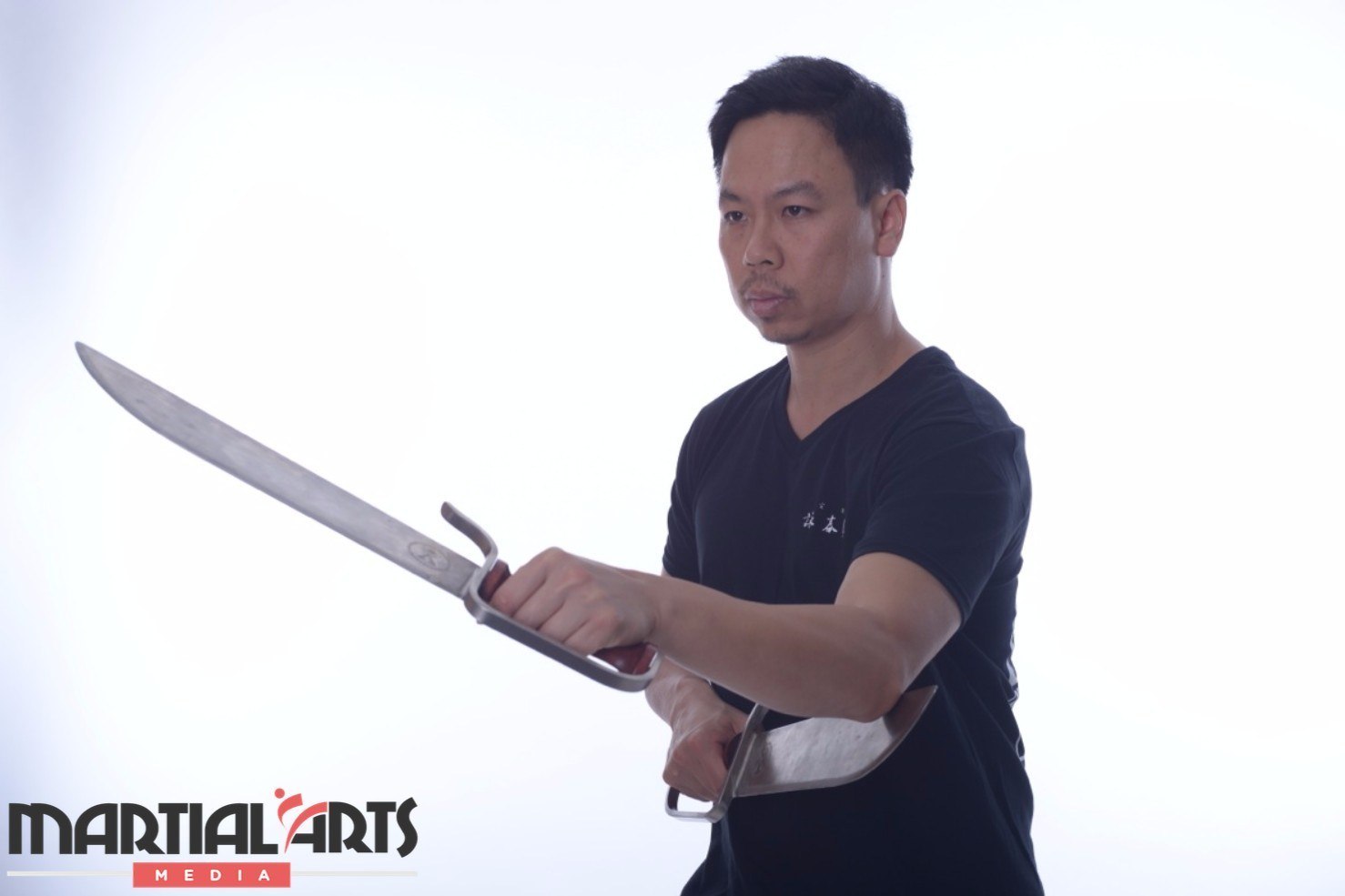
Jack: So, from my experience, I'm not an expert, but I just try to learn from different people's videos. I watch a lot of YouTube videos and try to learn from them. And this is from my research, is that people just have very short attention span, unfortunately, and if you don't capture them within the first 30 minutes, some even say, hang on, I said 30 minutes, I mean 30 seconds. If you can't capture, Facebook videos, in 10 seconds, you can't really get them. So first of all, like you said, you have to really have a topic, and what the video is for. Is this to showcase your techniques, or is this to spread some self-defence, or even the culture of your school, marketing for your school? You really have to work out on a topic in order to showcase your video and make it better for your business.
George: Okay, cool. So, you start with the topic, and then really communicating that really clearly, that the person that's going to watch it, that they know immediately, “Alright, this is what's in it for me, I'm going to get this.” Then, how do you transition from that?
Jack: Sorry, I can't hear you again, sorry.
George: So, how would you transition from, so you've done opening, then what becomes the focus in the video from there?
Jack: It really depends on the individual topic. So, if this video is to showcase our school, and we put it on a website for marketing, then what sort of image would you want to display yourself? If you're a fight gym, and you have a lot of fighters, I would say you would put different types of fighting videos in there. And if you're a family-oriented gym, or school, then you would put different topics, how you could actually give confidence to the young children, young kids. And if you're focusing on self-defence, or if it's just a general awareness video, then you have different topic-specific videos.
So then, you go into … I see a lot of times that people just do a video and just randomly shoot, like what you said earlier, just shoot around. “This is my school, and this is what we're doing.” And there's no lighting, audio is really bad, and … I'm not saying my video's good, please don't get this wrong: I'm trying to learn, it's more than just an iPhone or a smartphone now, it's more about lighting, it's more about getting a good mic. If you're trying to explain your concept, you need good audio, you need good … It's all together in one package.
And sometimes, it's interesting too, some normal videos that people shot by their phone would go viral, too. It's the content, too, it's also the content. You have everything in the right place but you don't have the right content, it won't work.
George: Yes, because there's so many ways to go about that. One thing I always try to speak about to our members in the academy, is, to get over the initial.. There is a fear element to it. Which is almost strange for me with martial arts instructors, because it's nothing different to what you would do on a day-to-day basis, you are teaching. So, looking at the, just to break down the layers of, what are the obstacles to overcome to do video? And that being, do you really need the flash video camera, or can you just use the iPhone? Do you need the fancy lighting? So, you prefer the lighting. And you work with, what type of equipment do you use, then, when you go about your videos?
Jack: It depends on what sort of videos I do. So, sometimes I get a team in, a video-photographer in. And they're good at what they do, you have to respect those people, and that's what they study and that's what they, give credit to them. And they can produce some really high-quality video. But sometimes, for a technique workshop, so I'm going to introduce, so, what happens when people grab me, choke me, grab my neck, what do you do? Those kind of short videos, it's about the content.
So, you need a proper, you can't just shoot it with a really old VHS camera or video camera. It has to be HD, the light has to be good. And if you don't have good lights, you can always shoot under the sun, just not facing the sun, it's under the sun. And also, audio has to be good. The problem with the smartphone is, you don't have a good mic to it. What I'm saying is, when I'm shooting, for example, if I'm holding a camera here and the person's way is usually, you want to showcase the entire body, how they stand. So, it's actually at least four, five meters away. And when you're trying to explain things that far away with a smartphone, it's really hard.
George: Yes.
Jack: So I got a professional Røde mic, from the store, and so I can hook it up, and it gives better. But it's never going to be as good as a professional video-photographer. But, it really depends on what sort of video you're producing.
George: Yeah, and like you said, the content. My, and I can't reach it now, it's a little lav mic, so it's the little mic that, you can just clip it on your shirt, and then it just goes in the iPhone. But I've got this long lead, that if I need the distance.
Jack: That can be a little tricky because I used to have one of those, and it can be really tricky when you're demonstrating. For normal use, if you're presenting the idea, that's perfect, but if you're demonstrating a martial art move, just imagine a ground fighter with that, to explain. It's very hard, you tangle them all up. Okay, I'm joking about, I'm just saying. So I recently, I keep buying toys every week, if my wife is watching this she's not going to be happy. So, I bought a wireless mic, so I'm testing it out. So, I can wear it on me, I can put it in my iPad or my SLR, and then, the audio can go across. And hopefully, that will work for me.
George: Yeah. So, just on the, because you said you had a Røde mic, that's the premium brand with mics. So, you have it on a boom stand that it's just above you when you?
Jack: And or you can always do this at a lower cost. The Røde mic that I bought isn't too expensive, it's under $100, and when you were saying, the boom stand, I didn't get that, I just tangle it on a stick, on a training stick we have. It's the same idea, but someone will have to hold it, hold it up high. Or, you can somehow just attach it over the top, and that's a cheaper option for good video, audio if you do.
George: Alright, great. So one thing I really try and get across to martial arts school owners is to really embrace the idea of video because it's the one platform that you can leverage. You can create one video, you can transcribe the actual audio, you can turn it into a blog post, and you can email it to your prospects. Then, you can start your social media, and you can just place it everywhere. So, if you can look for a leverage point for your marketing, then video is really it because it's the one modality that you can just convert into all these multiple modalities.
So, what advice would you give for a martial arts instructor that's hesitating with the whole doing the video thing and just the real, core basics of what they should do to get started?
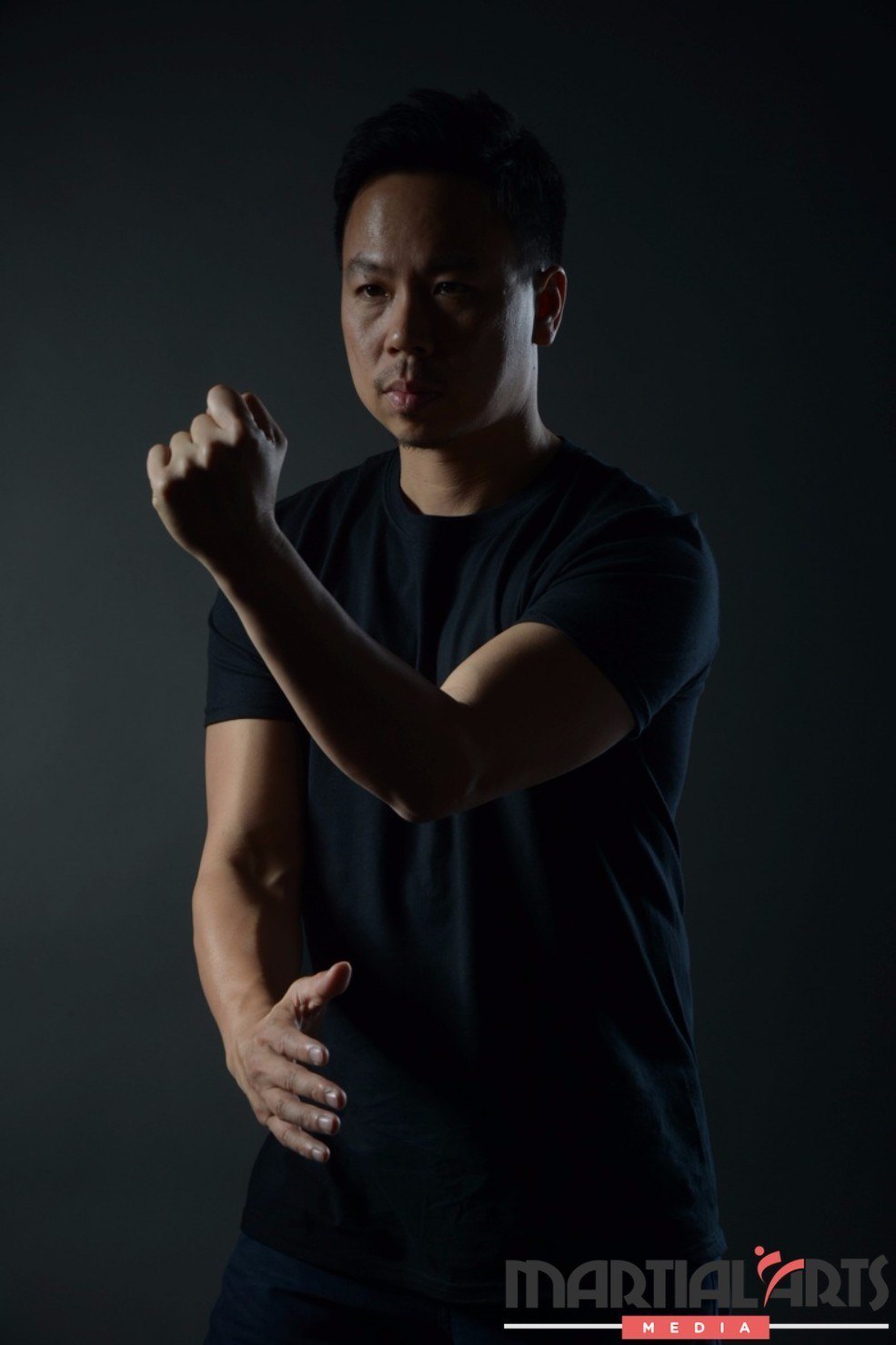 Jack: I would say, always give it a try. When I first started, it's the fear of facing a camera, looking at a camera. It's like you're talking to someone, but there's no one there. And you get nervous, and I think you have to start doing a little bit mini test videos, and work around it, the fear. I think the fear is the most important thing. Most martial artists, most martial art business owner knows their own stuff. If you don't know, then I would be worried about it. So, most people know their own stuff. But to present it in front of a camera, my advice is, you don't have to do it in front of your students, just set up a tripod, put a camera, or put your iPhone on, face yourself, and try to do some simply, try give it a shot. One minute video.
Jack: I would say, always give it a try. When I first started, it's the fear of facing a camera, looking at a camera. It's like you're talking to someone, but there's no one there. And you get nervous, and I think you have to start doing a little bit mini test videos, and work around it, the fear. I think the fear is the most important thing. Most martial artists, most martial art business owner knows their own stuff. If you don't know, then I would be worried about it. So, most people know their own stuff. But to present it in front of a camera, my advice is, you don't have to do it in front of your students, just set up a tripod, put a camera, or put your iPhone on, face yourself, and try to do some simply, try give it a shot. One minute video.
And have a look at it. If it's not too bad, you can always work on it. This is a very different day to before, we can always shoot and re-shoot. If it's not good, just delete, redo it again. If the audio's not good, I'm going to work on the mic. And lighting. You can do it outdoor, or just grab two lights that's facing from behind the camera, like you were saying earlier, and facing towards you, and that would work. You don't want to have it, I'm not expert, but you don't want to have it above you. Above you, the shadow's coming down, won't make you look too good. But if it's facing in front of you, have the audio on. Try to get a tripod, tripod is a good idea. You don't want to shake your video unless you're trying to do some action video. But I'll leave that to the video-photographer.
So there is all my advice. It's not too much about the technology itself. The mic itself is under $100, tripod, a cheap one is 30. It's about the fear of talking to a square-shaped object, and continue talking, and showing your technique, or displaying your school. That's the hard bit, I think.
George: Yes. You're so right. I think it's also the fear of being judged. Is it going to be good enough? What are my peers going to say? How are people going to perceive this? Am I going to get backlash? People love to hate on martial arts videos. Everybody always knows something better, or, “You could have done this.” That's just in the bigger scheme of things. But I think there's that fear element, of obviously getting over, “How am I going to be perceived by the community,” as such.
Jack: Yes. It's also the fear. But, remember one thing, it's just like everything else and including martial arts: the more you train, the better you get. You remember your first day when you walk into a dojo? You know nothing. And then, you get better at things, and then you're down the track, like for example you get your black belt: you realize you only know little. But that's how it is. So same with video, it's the fear. “I don't know how to set this up.” Try to learn. There's lots of videos online, you can educate yourself. Educating yourself. But not going in, and not willing to educate yourself, that is the big problem with a lot of martial artists, and general business people, and that's a big problem.
So, my tip is just give it a go, video yourself, lighting. If you're already videoing yourself, see how you can improve it. Can you work better on the lighting? What about audio? Have you got those, video and audio? What about your transitions between? Are you good at editing? If not, you can always find people who are good at editing online, places like fiverr.com. You can get someone to do your intro logos and things like that.
And also, another important thing is, I think, it's also not just one video. You've got to think, plan ahead. What is your goal? Is it a series of video? Are these videos trying to help you promote your school? What are you trying to showcase? Are you just trying to showcase a self-defence move, where there's 10,000 people showing it already on YouTube? What make your video better than the video next door, than the person next door? So that's what I think.
George:Definitely so and I think that's probably the most important part, is, what is the point? Why are you actually doing the video? Is it to speak to the prospects? Is it to speak to somebody in the community? Is it to speak to an existing student? And I know there are people that go as far as, write that, just like in marketing when we write sales copy, we try and create this avatar, this person. His name's Bob, 35-year-old, has two kids, and wanting to start training martial arts but he's not sure. He's got these injuries, he's never done anything, and he thinks he needs to be fit.
So, you have this mental image of this one person, and then base it on that. And I've heard a lot of people actually put a photo of someone behind the camera as well, just to take away that awkwardness, of their perfect prospect, whoever they're trying to talk to. And now it becomes more real because you're having a conversation with someone.
Jack: Yes, yes. When I first started doing the videos, and a lot of interviews, I actually need someone to sit behind the camera, so I can actually look at that person, and explain to that person. And that helps a lot, too. That helps a lot. And I was saying earlier that there's online website that can help you edit your videos. I forgot to say that there are a lot of apps these days, which you can actually put your videos in together, a few clicks, like iMovies on your iPhone, and different types of apps. Adobe apps and they can put your … If you're looking at putting a marketing video for your school, that will help, definitely help.
Obviously, getting a video-photographer is the best, it's the best. But sometimes, I put in a bigger production, and sometimes I do little production in between. What I tend to do is, I try to put out a video every week, so there's always a video. It can be a big production, it can be a small production, it can be talking about techniques, how I deal with things, or it can just be fun.
When you were saying earlier, I know this is a little bit different to how business-minded people, where they write out programs and what they do, I like fun. I enjoy being with my students, I enjoy videoing things, I do things sometimes I don't … It's not always about money for me, but there's no limit for me. Sometimes, I blow my video budget, I just go, “Oh, cool, add in the drone. How much is a drone? 500? Oh. Add in the drone, don't tell my wife.” And then it makes the video look cool.
And we went with a bunch of our student, we went to Glass Hill mountain, we shot at 5:00 AM in the morning with the drone going up, and it looks beautiful, I love this. And at the same time, does it help? I think it helps. It helps my potential, people who are interested in training. “Hey, this instructor seems fun, this school seems fun.” Maybe it's not a direct marketing or direct business mindset, I'm not trying to build this fun because I am fun, and we are fun. And this is what we're trying to showcase, rather than, “Come join with us, we are the fun school.” No, it's not like that. It's what we do, make us who we are.
George: That's excellent. So you're really using it as a way to express your personality. And I'd probably add to that, then, because I think that's when you're starting out, that's probably the biggest obstacle. Well, once you've actually started doing it, the biggest thing is to really just find your voice. That place where you're comfortable with the camera, and the way you portray yourself. For me, the rule I put in place with face-to-camera video, is just be comfortable messing up. Just be comfortable making mistakes.
If we're having a conversation, I do it in the podcasts all the time, I fumble on a word, or I say something and I'm like, “Oh, okay, I shouldn't have said that” but I just laugh it off. I just make peace with it. Because, if I was having a conversation with someone, that's my personality, that's the way I am, so I'm going to make these mistakes. Now it's just on video, there's nothing really different.
Jack: Yes, that's right. But there's one thing, I forgot to say, is when you put it out there, when you put yourself out there, there will, like everything else in the world, there will be people that like you, and there will be a lot of people that don't like you. And to present yourself out there, there will be people leaving not so friendly comment. And you just have to ignore them. And this is what you do, and then … So that might be something a martial arts business owner will have to think before they present themselves, put themselves out there.
George: Yes. And my filter for that is, when I get backlash, then I'm obviously doing something right. That's the justification I have for myself. But it's really true, because when you start speaking to a certain audience, and the right audience that connects with you, then this polarizing thing almost happens automatically. Because you're connecting with a certain profile, which means you are upsetting other profiles, or they just don't agree, or they have never done a video, and they're jealous, and they're not getting over their own fear, so their defense mechanism is to run you down, because they're just not doing it, so yeah. But definitely, get comfortable with the backlash that comes with any form of content marketing, as such.
Jack: That's right, yes.
George: So to wrap up, we can put together a bit of a framework. I really like production style video for the big things you're going to do. I see, you had an awesome promo video on your YouTube video for the events, with music, and it was really just, it had the suspense feel to it, which was really good, with the opening, just the music in the background. But then again, I'm a big fan of also, just videos on the fly. Because, if you're doing video as a method for content marketing, then it's good to not have barriers, that you get it done. And that would be, maybe it's the iPhone and the mic and the boom, and you've got light coming into your dojo on the mats, and now you can do something. Or hand the camera to a student to do the filming.
So, I guess if we had to look at a checklist, we've talked about finding your voice, having the lights pointed at you, try and get a good mic. If you don't have a mic, just start, because it could take you 10 takes of a video to actually feel that comfort of, okay, this is something that I actually want to put up. So you've got that. Make sure that you cover the topic, be very clear on the opening because we want to grab attention. And then start your content, what it is that you're going to do.
And then I'll add, for a little framework, something that we've … And public speakers have always spoken about this, that you tell them what you're going to tell them, then you tell them, and then you tell them what you just told them. And it does really add to the video framework. Because now you can just say, “Hey, this is me, this is what we're going to do, this is,” maybe, the situation, how it will happen. And then you do it, and then you do the recap, and then you can close off, obviously, with, “Check us out on YouTube,” or your website, wherever you want to go.
Jack: You're good at this, exactly what you just did. That's exactly what you just said, I think you went through all the point list, for which you said.
George: There you go. Awesome. Before we wrap up, just with, where people can find you, because you've got to … And we'll add a lot of videos to this episode, so you can just check the show notes for that. Is there anything that I should have asked you that I did not get to?
Jack: We didn't get to talk about the positive energy, which is another … I said, we are happy, we're a good club, we're fun club, but I also believe we're a positive energy, and that's the culture of the club. So I did say earlier, about people marketing their videos towards different point of view, and why they do their videos, but also, showcase your school, so people know who you are, what you do before they come in and see you. And that's very important, too.
George: Very good point. And with that, it would help that your videos don't, you don't have to be the hero. This is actually, I remember this now, I added this as a slide in one of our training module in the academy, but the whole thing was, don't be … You don't have to be the hero. If you want to showcase, as you say, why not get your students involved?
Jack: That's right, that's right. I'm not always the centre of the spotlight, and a lot of my videos are my students, and why they enjoy training here. And the events, we had events where we dress up in Star Wars costume, and we order lightsabers in, and we had some duelling. And then we did some training workshops, and all the donation money goes to children's hospital. Things like that, it showcase who you are, and what you do, and what you enjoy, and what you believe, and that’s the most important. That's what I think.
George: That's excellent. And we can tie that back to marketing as well, because, at the time of recording this, Halloween's coming up, and that's an ideal … How can you turn that into a fun event? Doesn't have to be marketing video, but you showcase the fun environment and the positive energy that happens at your school.
Jack: Yes.
George: Alright, awesome. Well, Jack Leung, it's been fantastic speaking to you. Now, for anybody that wants to check out Jack's website, it's practical-wingchun.com.au, did I get that right?
Jack: That's right, yes.
George: And your YouTube channel, if people want to find that. What is your YouTube channel called?
Jack: Practical Wing Chun Australia, and then you can find me on the YouTube channel.
George: Alright, awesome. Any other links that we need to mention, where people can find you?
Jack: Practical Wing Chun Australia on the Facebook link, and you can find me, yeah.
George: Alright, awesome. Jack, it's been great speaking to you, I will speak to you soon.
Jack: Thank you, I'll see you soon. Take care, buddy.
George: Awesome, cheers.
*Need help growing your martial arts school? Learn More Here.
Enjoyed the show? Get more martial arts business tips when you subscribe on iTunes for iPhone or Stitcher Radio for Android devices.


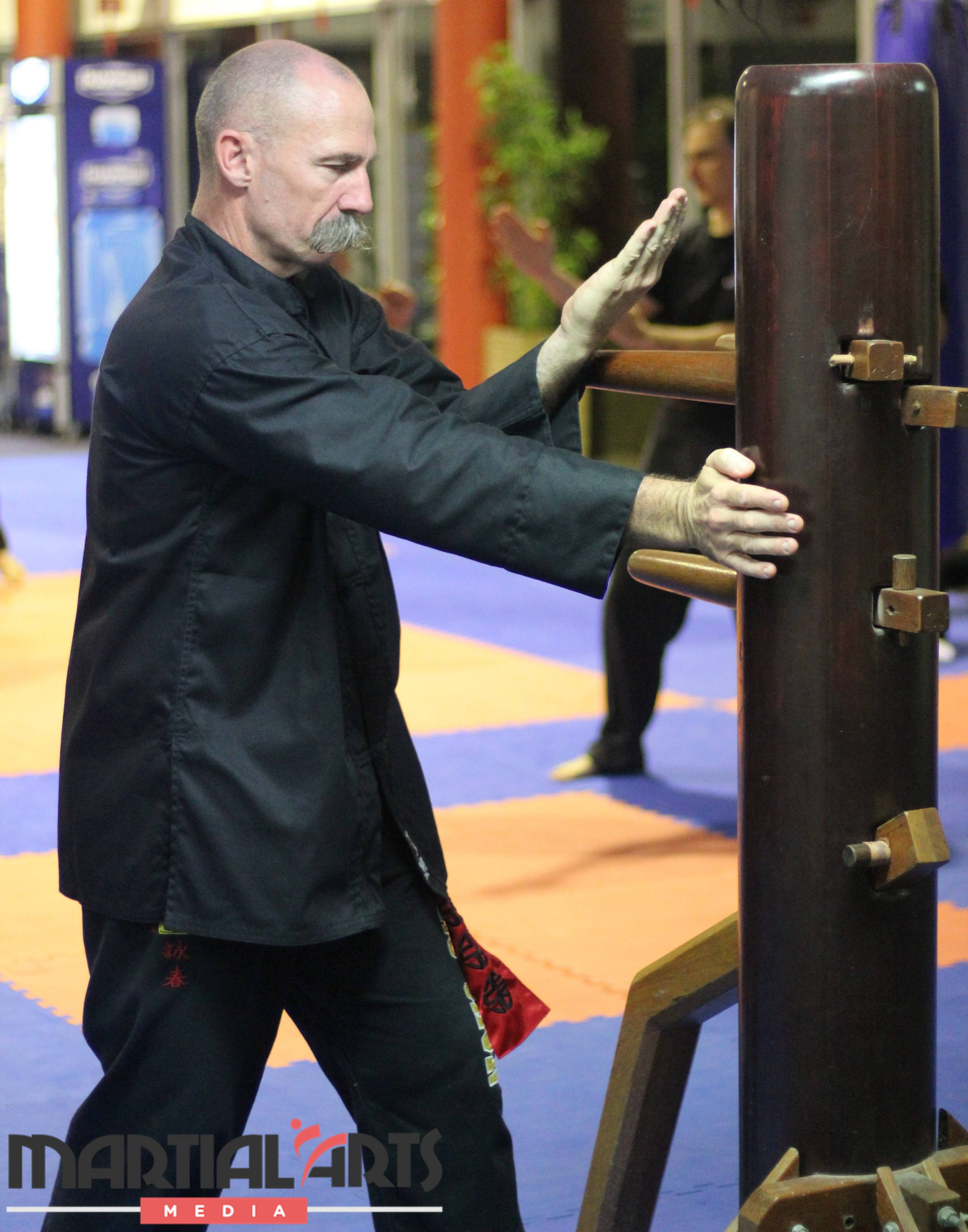 Dave: Funnily enough, in the beginning, it just started off over a cup of coffee with a mate of mine, Jack Leung from Practical Wing Chun, he pointed out your Martial Arts Media Facebook page I think it was. I looked into it and then yeah you had the academy there and it sort of went from there, because I was really wanting to make my school go full time. At that stage it wasn't, so I was just hungry for information and help to get into an industry that I'd been a part of but only on the outskirts.
Dave: Funnily enough, in the beginning, it just started off over a cup of coffee with a mate of mine, Jack Leung from Practical Wing Chun, he pointed out your Martial Arts Media Facebook page I think it was. I looked into it and then yeah you had the academy there and it sort of went from there, because I was really wanting to make my school go full time. At that stage it wasn't, so I was just hungry for information and help to get into an industry that I'd been a part of but only on the outskirts.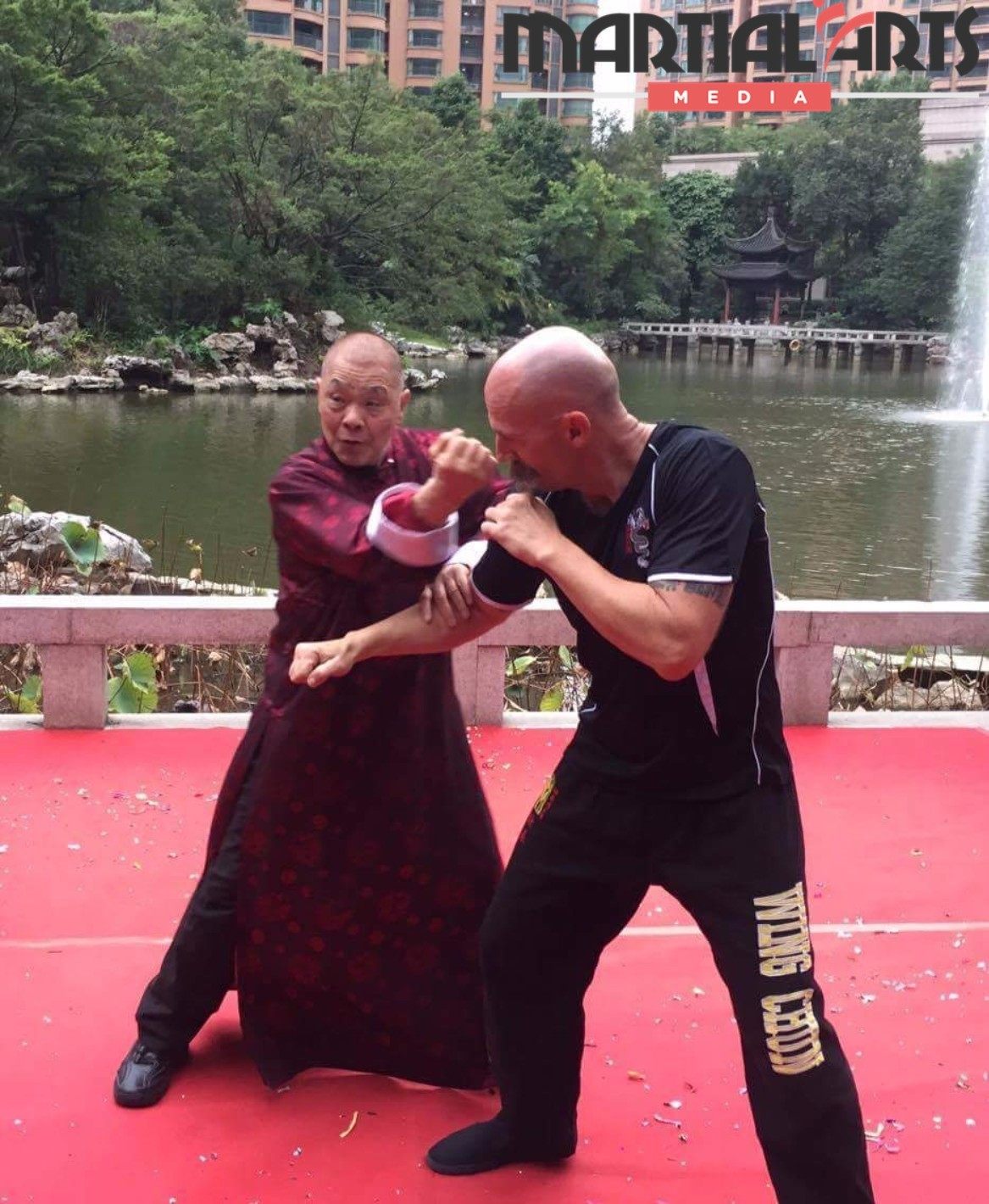 Dave: Yeah George, I'm sort of the type of person that is always keen to learn. I've got a hunger for knowledge, so it's been a great journey with you doing all of the different aspects of what we've covered in the academy. Say from how your website should be structured, the email sequences, and then how to work Facebook, I mean how many modules was that. That did my head in, it's still doing my head in.
Dave: Yeah George, I'm sort of the type of person that is always keen to learn. I've got a hunger for knowledge, so it's been a great journey with you doing all of the different aspects of what we've covered in the academy. Say from how your website should be structured, the email sequences, and then how to work Facebook, I mean how many modules was that. That did my head in, it's still doing my head in. 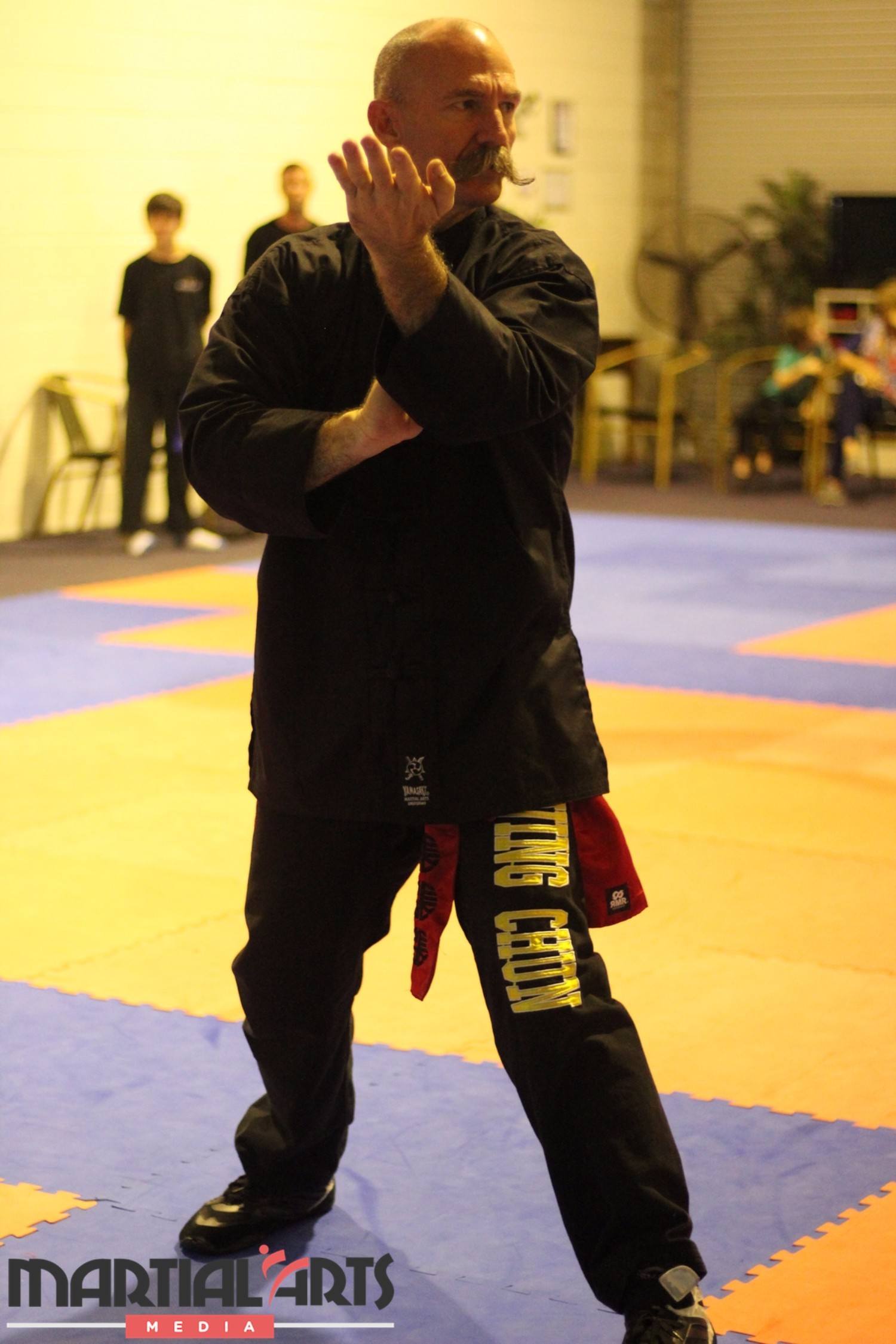 Dave: Mate, look anybody who has a martial arts school, you can't go wrong.
Dave: Mate, look anybody who has a martial arts school, you can't go wrong. 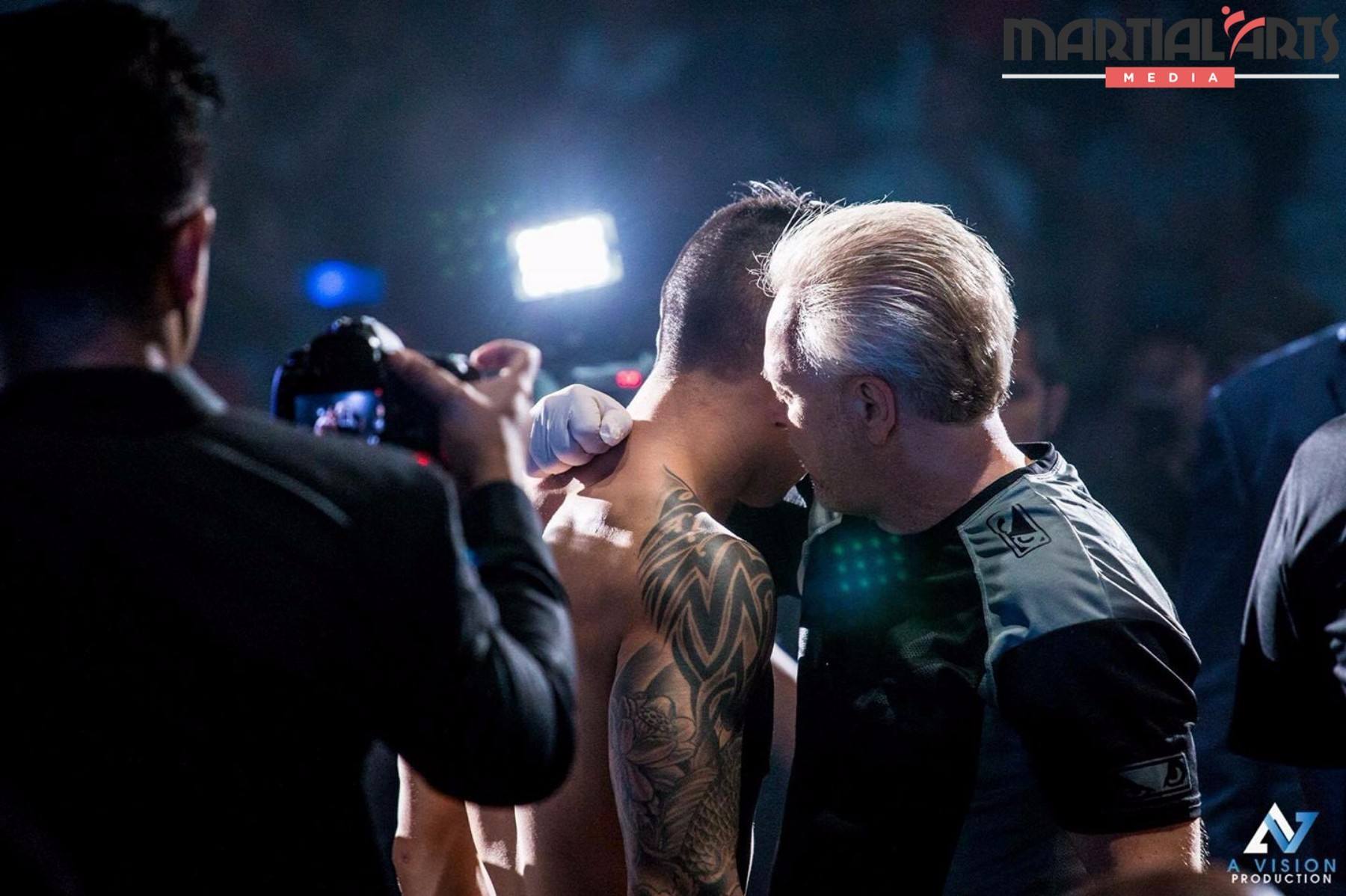

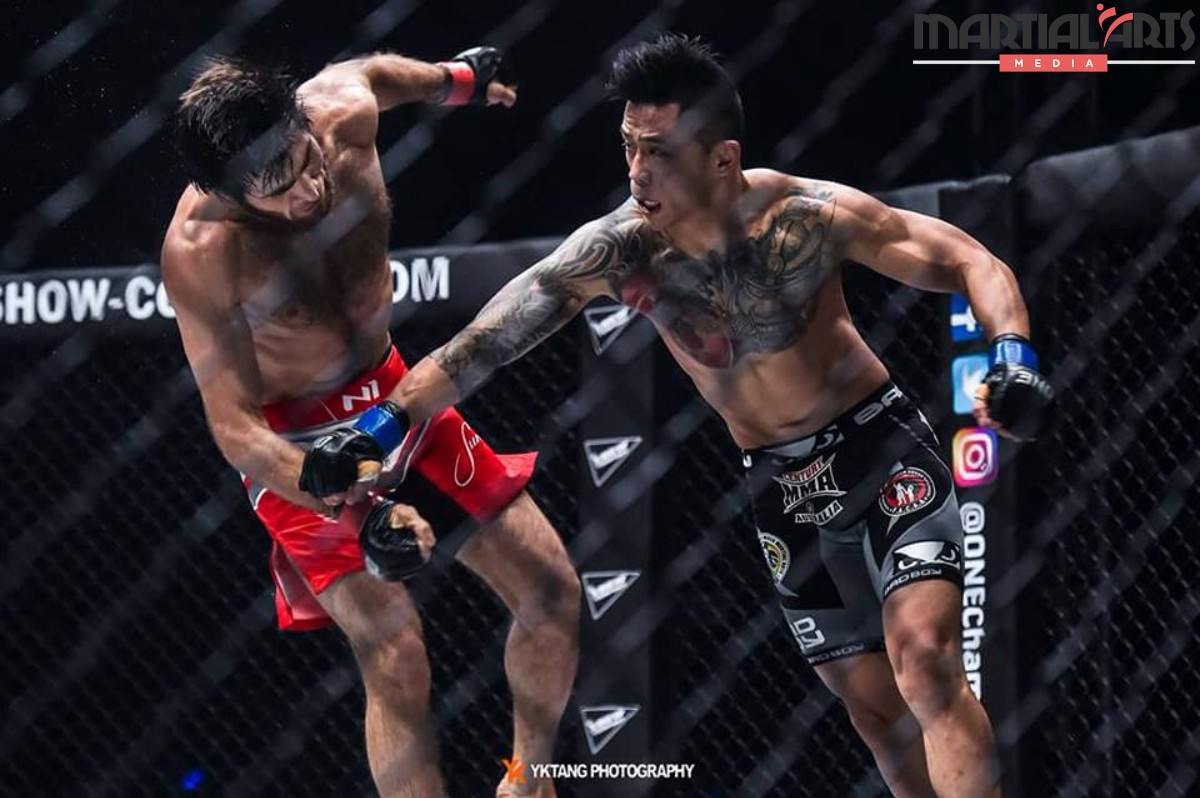

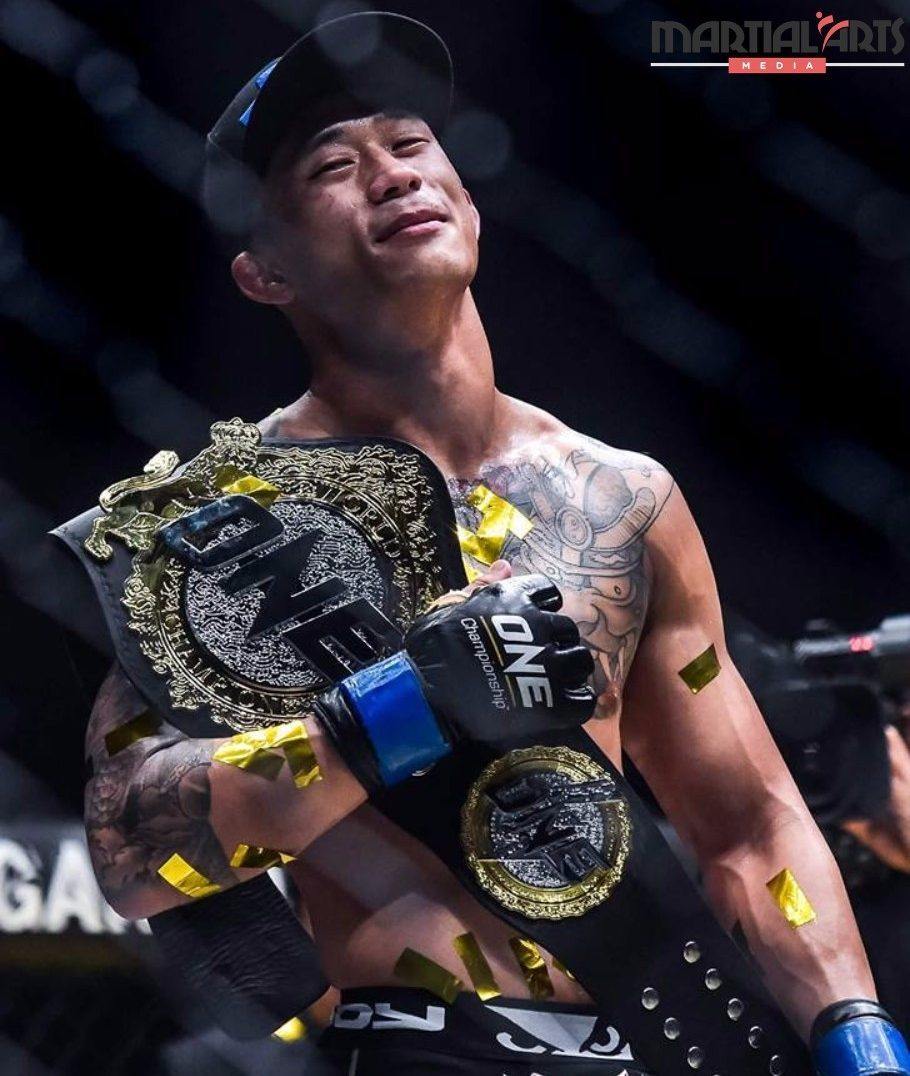

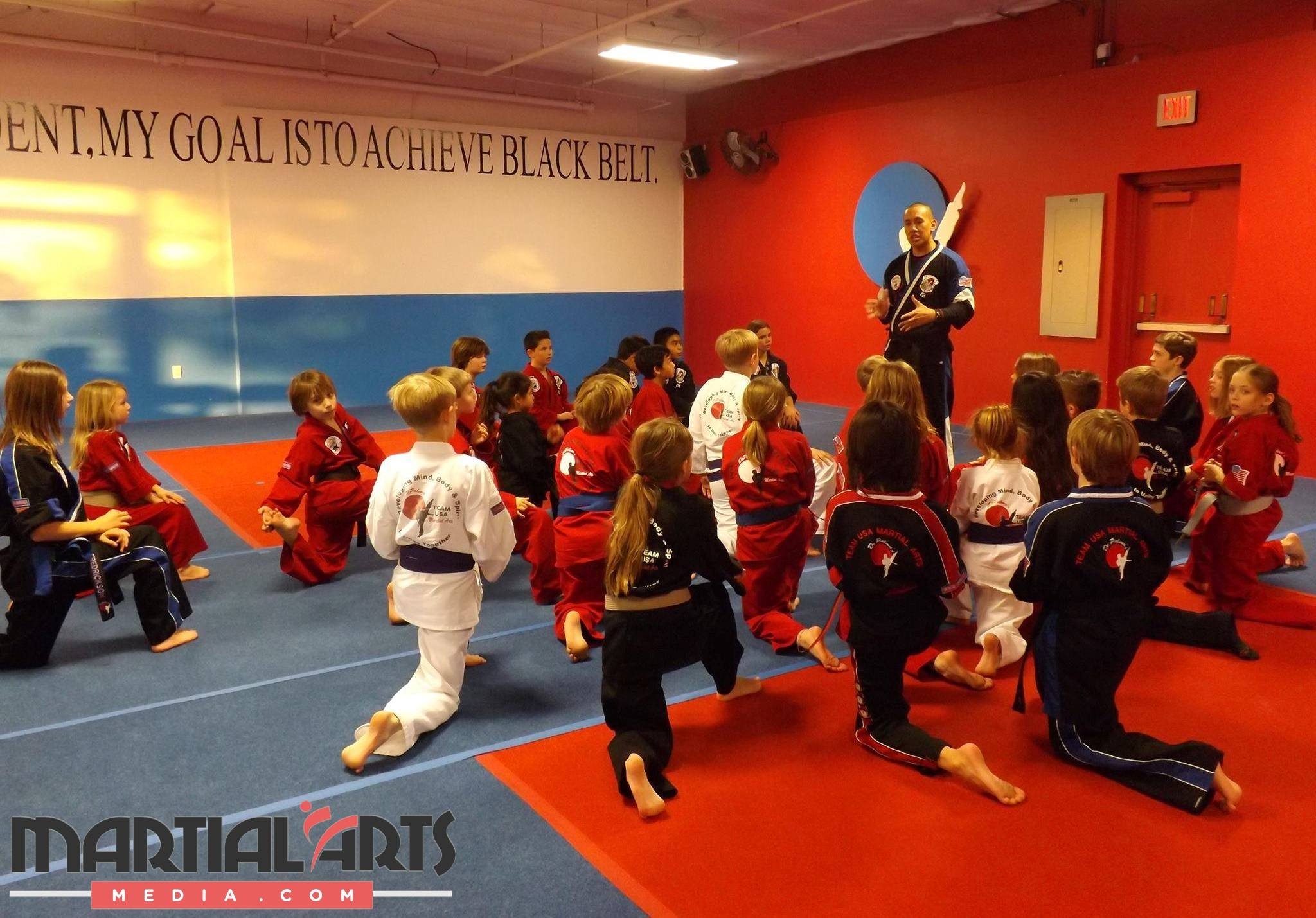
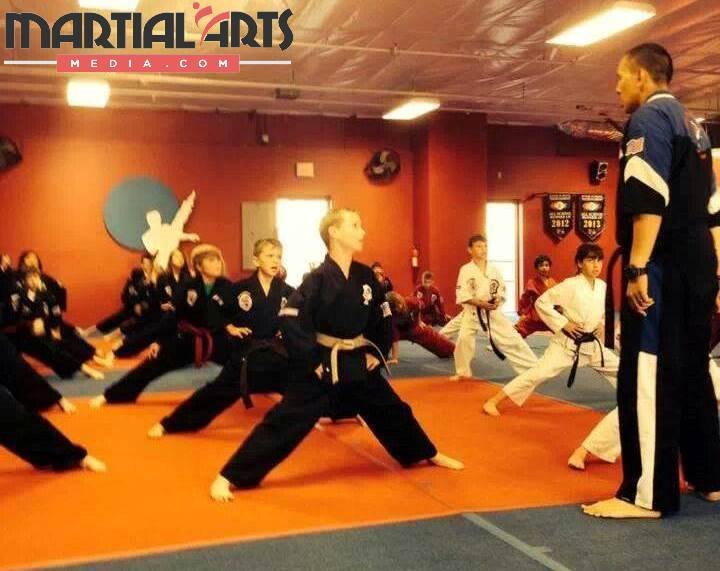
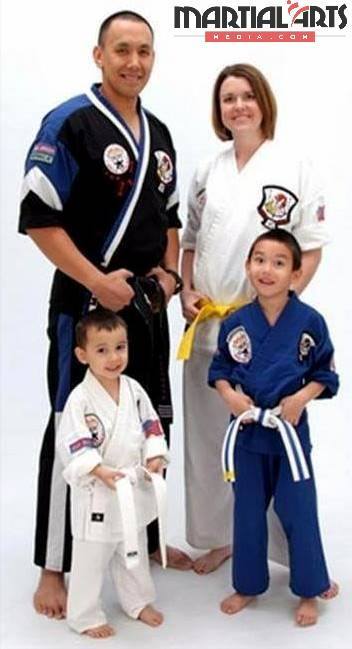 Energy is – actually let me kind of segway this a little bit: before I teach, I'm a business owner, so I’ll do all my business stuff in the morning and early afternoon, but before I teach, no matter what, I usually take at least 30 minutes to an hour of me time before I have to teach that day. Whether it’s a private class at 3:30, even if I might have been at the school all day, at 2:30, I get in my truck and I drive.
Energy is – actually let me kind of segway this a little bit: before I teach, I'm a business owner, so I’ll do all my business stuff in the morning and early afternoon, but before I teach, no matter what, I usually take at least 30 minutes to an hour of me time before I have to teach that day. Whether it’s a private class at 3:30, even if I might have been at the school all day, at 2:30, I get in my truck and I drive. 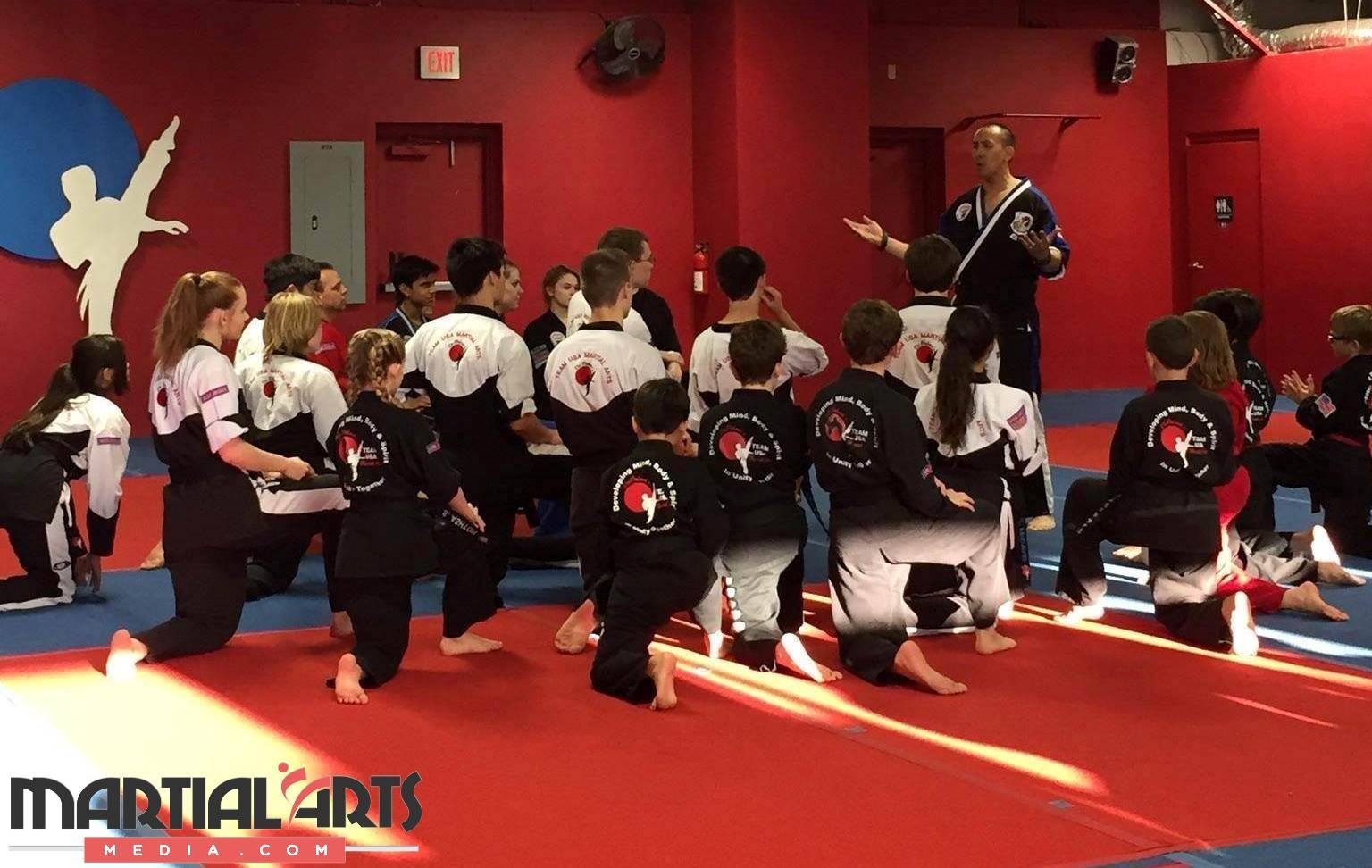

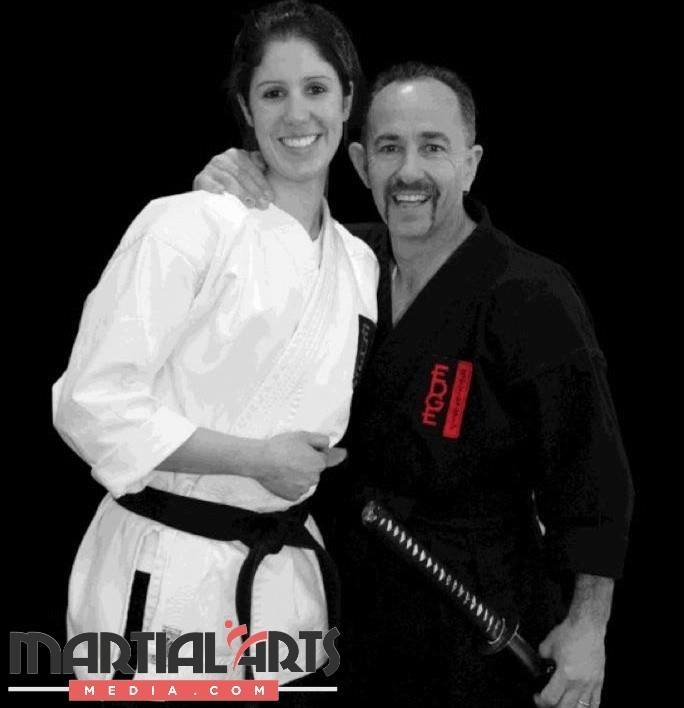
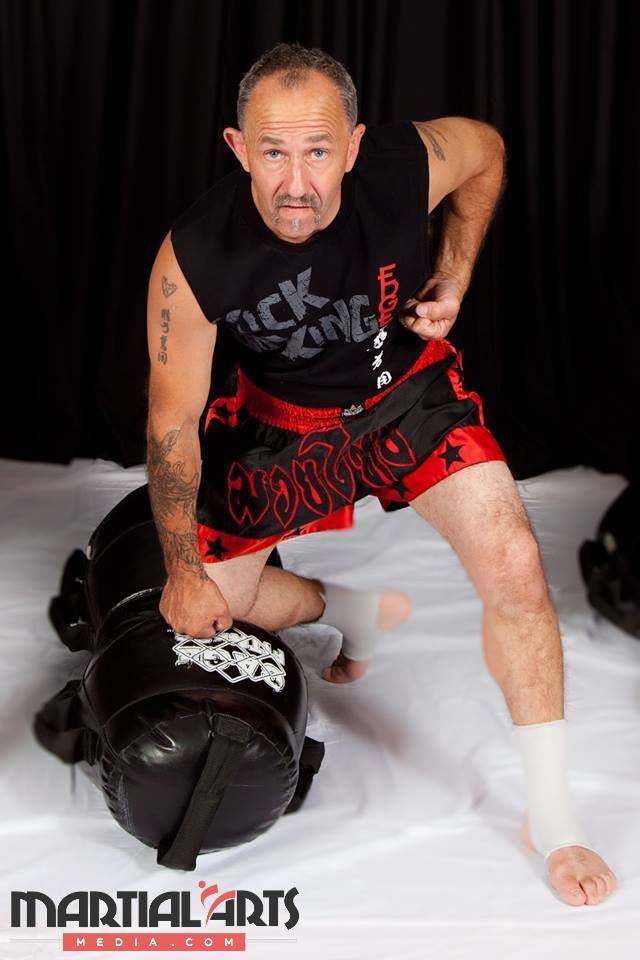
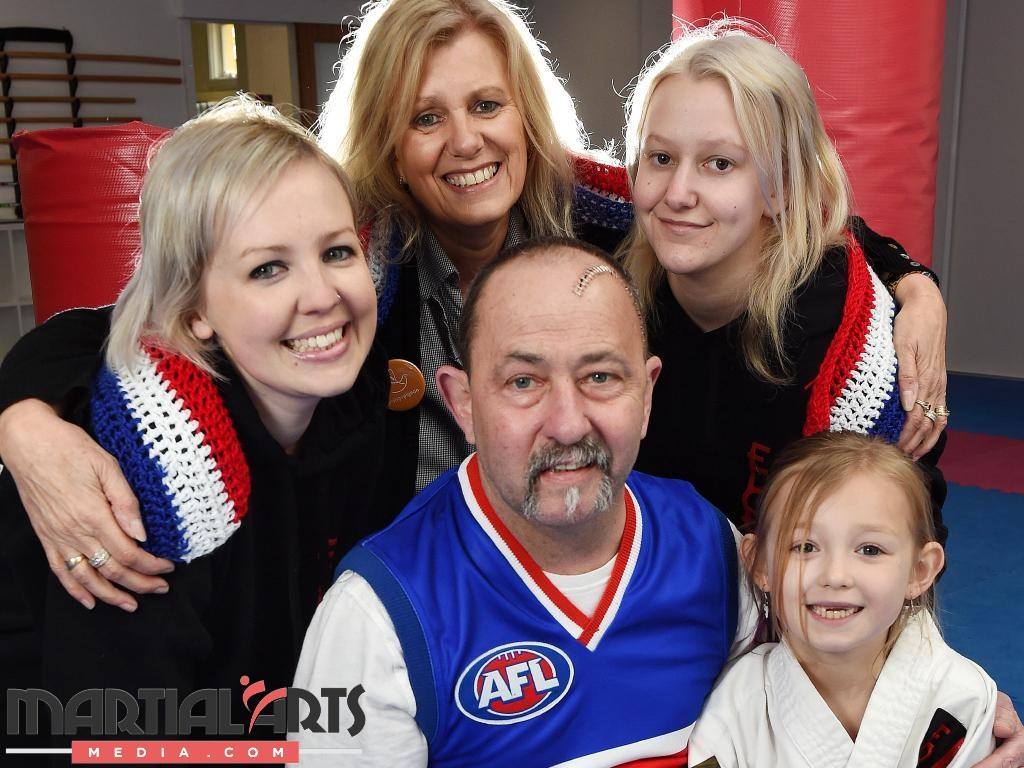
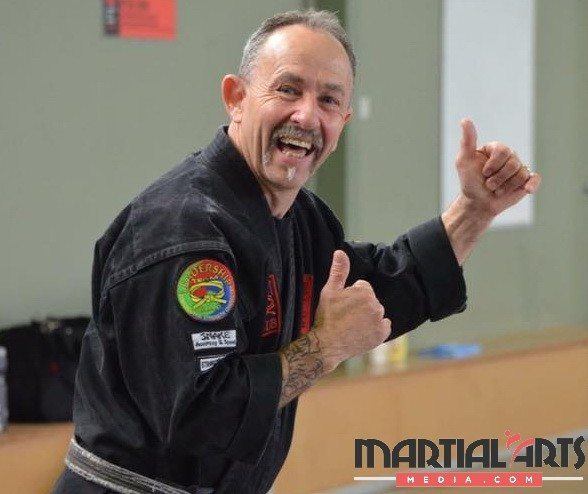
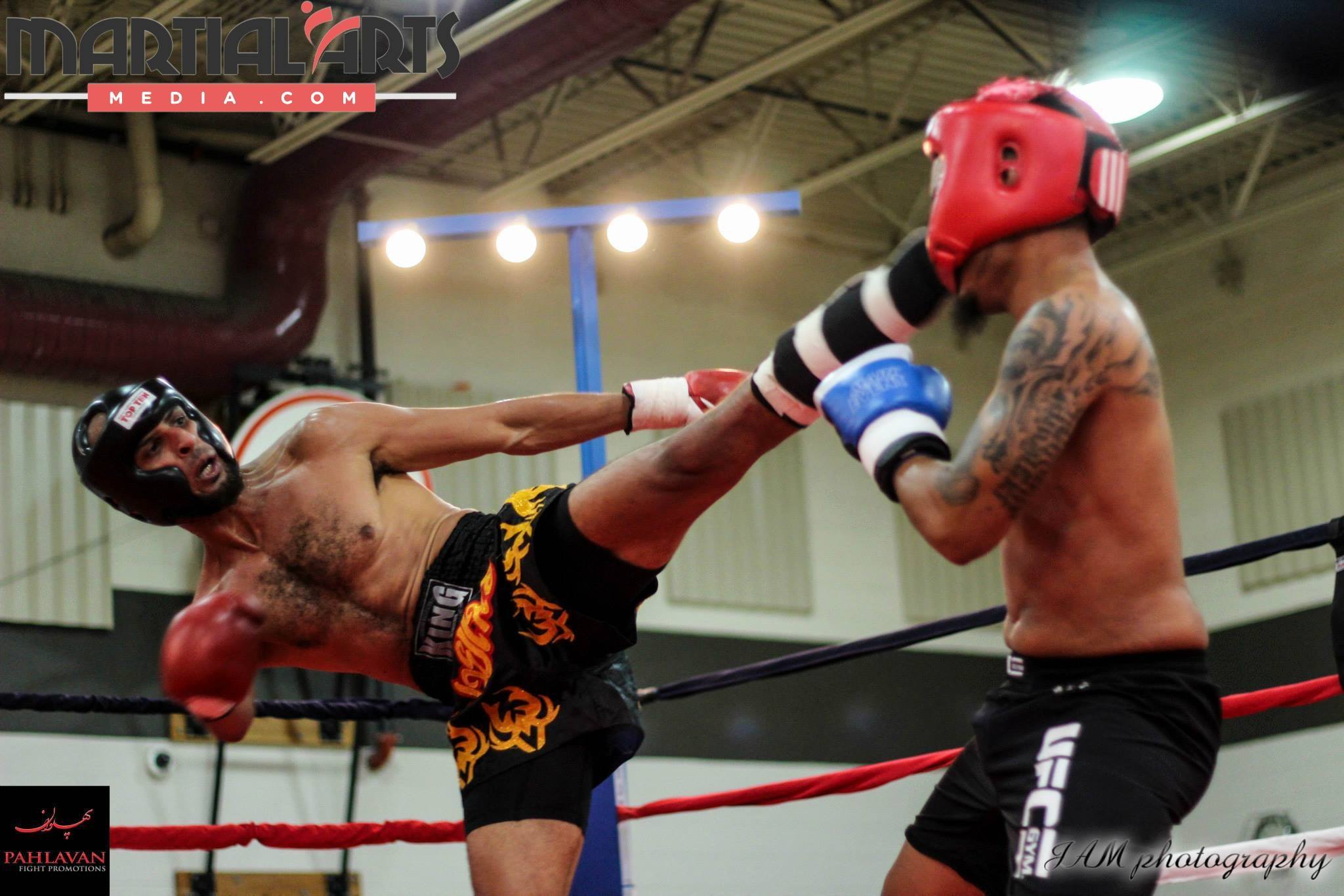
 ADEL:
ADEL: